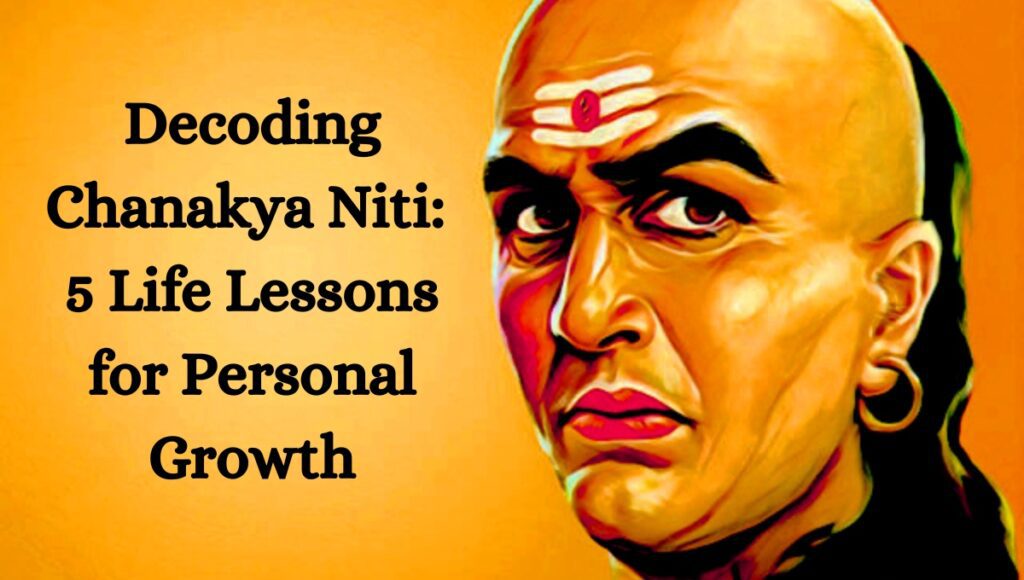Chhatrapati Shivaji Maharaj: 10 Lessons to learn from the Most Respected and Admired Leader in India

Hi guys! A very warm welcome to my blog. Today I’m gonna talk about one of the most respected and admired leaders in India: Chhatrapati Shivaji Maharaj.
Chhatrapati Shivaji Maharaj was a legendary warrior king who lived in the 17th century in the western part of India. He is widely regarded as the founder of the Maratha Empire, which challenged the dominance of the Mughal Empire and other foreign invaders. He is also revered as a national hero and a symbol of courage, patriotism, and self-respect.
But what made him such a great leader? What can we learn from his life and leadership? How can we apply his lessons to our own personal and professional lives?
That’s what we are going to explore in this blog. We will share 10 lessons that you can learn from Chhatrapati Shivaji Maharaj’s life and leadership. These lessons will help you to become a better person, a better leader, and a better citizen.
So, are you ready to learn from the greatest warrior king in Indian history? Let’s get started!
Lesson 1: Start early and learn from your mentors

👉 One of the first lessons that you can learn from Chhatrapati Shivaji Maharaj is to start early and learn from your mentors. 🙏
Shivaji was born in 1630 in the Shivneri Fort near Pune. His father, Shahaji Bhonsle, was a general in the service of the Adilshahi Sultanate of Bijapur. His mother, Jijabai, was a devout and courageous woman who instilled in him a sense of pride and honor for his heritage. 🙌
Shivaji started his career as a leader at a young age. He was inspired by his mother and his mentor, Dadoji Konddeo, who taught him the art of warfare, administration, and statecraft. He learned from them how to be brave, loyal, generous, and visionary. He also learned from them how to respect all religions, cultures, and people. 🙏
He applied their teachings to his own actions and soon became a formidable force in the Deccan region. He conquered several forts and territories from the Adilshahis and the Mughals. He also established a loyal and efficient army of soldiers, officers, and commanders who followed him with devotion and admiration. 💪
The lesson here is that if you want to be a successful leader, you need to start early and learn from your mentors. You need to find people who have achieved what you want to achieve and who can guide you along the way. You need to listen to their advice, follow their examples, and emulate their qualities. You also need to apply what you learn to your own situations and challenges. This way, you will grow faster, smarter, and stronger as a leader. 😎
Lesson 2: Be brave and innovative in facing challenges

👉 Another lesson that you can learn from Chhatrapati Shivaji Maharaj is to be brave and innovative in facing challenges. 🚀
Shivaji faced many challenges from powerful enemies, such as the Mughals, the Bijapur Sultanate, and the Portuguese. He had to fight against superior numbers, resources, and technology. He had to deal with treachery, betrayal, and deception. He had to overcome obstacles, setbacks, and failures. 😱
But he never gave up or backed down. He used his bravery and innovation to overcome these challenges. He used his guerrilla warfare tactics to surprise and ambush his enemies. He used his fort-building skills to create strongholds and defenses. He used his naval prowess to dominate the seas and coasts. He used his intelligence and diplomacy to forge alliances and negotiate peace treaties. He used his creativity and vision to devise new strategies and plans. 😍
The lesson here is that if you want to be a successful leader, you need to be brave and innovative in facing challenges. You need to face your fears and doubts with courage and confidence. You need to think outside the box and find new ways of solving problems.
You need to experiment with different ideas and methods until you find what works best for you. You need to adapt to changing situations and opportunities with flexibility and agility. This way, you will overcome any challenge that comes your way as a leader. 💯
Lesson 3: Be ethical and respectful in your dealings

👉 A third lesson that you can learn from Chhatrapati Shivaji Maharaj is to be ethical and respectful in your dealings. 🙌
Shivaji was known for his ethical and respectful behavior towards his friends and foes alike. He treated everyone with dignity and honour, regardless of their religion, caste, gender, or status. He never harmed or insulted anyone unnecessarily. He never cheated or lied to anyone. He never broke his promises or violated his treaties. He never abused his power or authority. He never exploited or oppressed anyone. 😇
He demonstrated his ethics and respect in many ways. For example, he respected women and protected them from harm. He respected all religions and allowed them to practice freely. He respected his enemies and offered them fair treatment. He respected his subjects and provided them with justice and welfare. He respected his allies and rewarded them with gratitude and generosity. He respected his elders and sought their blessings and guidance. 🙏
The lesson here is that if you want to be a successful leader, you need to be ethical and respectful in your dealings. You need to treat everyone with kindness and compassion, regardless of their differences or disagreements. You need to be honest and trustworthy, regardless of the consequences or temptations.
You need to be loyal and faithful, regardless of the challenges or difficulties. You need to be humble and modest, regardless of your achievements or positions. You need to be responsible and accountable, regardless of your mistakes or failures. This way, you will build trust and reputation as a leader. 🌟
Lesson 4: Delegate and empower your subordinates

👉 A fourth lesson that you can learn from Chhatrapati Shivaji Maharaj is to delegate and empower your subordinates. 🙌
Shivaji believed in delegating and empowering his subordinates to make decisions on their own. He did not micromanage or interfere with their work. He did not impose his will or opinion on them. He did not criticize or punish them for their errors or shortcomings. He did not take credit or glory for their achievements or contributions. 😊
He delegated and empowered his subordinates in many ways. For example, he created the Ashtapradhan system, a council of eight ministers who advised him on various matters of state. He organized his army into various units, such as the Mavlas (mountain warriors), the Bargirs (cavalrymen), the Silahdars (armored soldiers), and the Qiledars (fort keepers).
He encouraged his subordinates to take initiative, show leadership, and express their opinions freely. He supported them with resources, training, and guidance. He appreciated them with recognition, praise, and rewards. 🙏
The lesson here is that if you want to be a successful leader, you need to delegate and empower your subordinates. You need to trust them with tasks and responsibilities that match their skills and abilities. You need to respect them with autonomy and freedom that suit their personalities and preferences.
You need to motivate them with challenges and goals that inspire their passions and interests. You need to help them with feedback, coaching, and mentoring that enhance their performance and growth. You need to acknowledge them with gratitude, admiration, and appreciation that boosts their confidence and loyalty. This way, you will enhance your team’s productivity and morale as a leader. 💯
Lesson 5: Communicate effectively with your stakeholders

👉 A fifth lesson that you can learn from Chhatrapati Shivaji Maharaj is to communicate effectively with your stakeholders. 🙌
Shivaji was a master of effective communication with his various stakeholders, such as his subjects, his allies, his enemies, and his diplomats. He knew how to convey his message clearly, convincingly, and persuasively to different audiences, using different modes, mediums, and languages.
He knew how to listen actively, empathetically, and attentively to different feedback, opinions, and suggestions. He knew how to influence positively, constructively, and respectfully different actions, behaviors, and attitudes. 😍
He communicated effectively with his stakeholders in many ways. For example, he used Marathi as the official language of his empire to connect with his people culturally and emotionally. He used Sanskrit as the language of diplomacy to impress his counterparts intellectually and spiritually.
He wrote letters and treaties to express his views logically and formally. He gave speeches and gestures to inspire his followers passionately and personally. He used spies and informants to gather information secretly and discreetly. 🙏
The lesson here is that if you want to be a successful leader, you need to communicate effectively with your stakeholders. You need to tailor your message according to the purpose, context, and audience of your communication. You need to choose the appropriate mode (verbal or non-verbal), medium (oral or written), and language (formal or informal) of your communication. You need to use clear (simple words), concise (short sentences), coherent (logical flow) language in your communication.
You need to use clear (simple words), concise (short sentences), coherent (logical flow) language in your communication. You need to use a persuasive (appealing to emotions, logic, or ethics), constructive (offering solutions or suggestions), and respectful (acknowledging different perspectives or preferences) tone in your communication.
You need to use active listening (asking questions, paraphrasing, summarizing), empathetic listening (showing understanding, compassion, or support), and attentive listening (paying attention, avoiding distractions, or interruptions) skills in your communication.
You need to use positive influence (encouraging, motivating, or inspiring), constructive influence (educating, informing, or advising), and respectful influence (persuading, negotiating, or compromising) strategies in your communication. This way, you will convey your message effectively and influence your stakeholders positively as a leader. 🌟
Lesson 6: Keep learning and adapting to changing situations

👉 A sixth lesson that you can learn from Chhatrapati Shivaji Maharaj is to keep learning and adapting to changing situations. 🚀
Shivaji was a lifelong learner who kept adapting to changing situations and opportunities. He was curious and eager to learn new things, whether it was history, geography, literature, or science. He was open and willing to adapt to new technologies, weapons, or methods, whether it was guns, cannons, or rockets. He was flexible and ready to explore new territories, markets, or cultures, whether it was the Konkan coast, the Arabian Sea, or the Persian Gulf. 😍
He learned and adapted to changing situations and opportunities in many ways. For example, he studied the history and geography of India and the world to understand the past and present of his enemies and allies. He adopted new technologies and weapons from the Europeans and the Mughals to enhance his military capabilities and advantages. He explored new territories and markets from the south to the north of India and beyond to expand his empire and trade. 🙏
The lesson here is that if you want to be a successful leader, you need to keep learning and adapting to changing situations and opportunities. You need to be curious and eager to learn new things that can improve your knowledge and skills. You need to be open and willing to adapt to new technologies, weapons, or methods that can improve your efficiency and effectiveness.
You need to be flexible and ready to explore new territories, markets, or cultures that can improve your growth and diversity. This way, you will stay ahead of the competition and seize new opportunities as a leader. 💯
Lesson 7: Be visionary and ambitious in your goals

👉 A seventh lesson that you can learn from Chhatrapati Shivaji Maharaj is to be visionary and ambitious in your goals. 🙌
Shivaji was a visionary leader who had ambitious goals for himself and his kingdom. He had a dream of Hindavi Swarajya (self-rule by Hindus), which meant freedom from foreign domination and oppression. He had a vision of a powerful empire that spanned across India and beyond, which meant glory and prosperity for his people. He had an ambition of becoming a Chhatrapati (supreme sovereign), which meant honor and respect for his lineage. 😇
He pursued his goals with passion and determination. He fought against all odds and obstacles to achieve his dream of Hindavi Swarajya. He conquered lands and seas to achieve his vision of a powerful empire. He crowned himself as a Chhatrapati in a grand ceremony to achieve his ambition of becoming a supreme sovereign. 😍
The lesson here is that if you want to be a successful leader, you need to be visionary and ambitious in your goals. You need to have a dream that inspires you to fight for your freedom and dignity. You need to have a vision that motivates you to create your legacy and impact.
You need to have an ambition that drives you to reach your potential and excellence. You also need to pursue your goals with passion and determination, overcoming all odds and obstacles along the way. This way, you will achieve greatness as a leader. 🌟
Lesson 8: Be humble and generous in your attitude

👉 An eighth lesson that you can learn from Chhatrapati Shivaji Maharaj is to be humble and generous in your attitude. 🙌
Shivaji was a humble leader who never let success get into his head or make him arrogant. He always remembered his roots and origins, never forgetting where he came from or whom he owed his success. He always acknowledged his limitations and weaknesses, never pretending to be perfect or infallible. He always sought feedback and advice from his elders and mentors, never ignoring or rejecting their wisdom or guidance. 😊
He showed his humility in many ways. For example, he revered saints and elders like Ramdas Swami, Tukaram Maharaj, Jijabai, etc., seeking their blessings and guidance regularly. He wore simple clothes and lived a simple lifestyle, avoiding ostentation or extravagance.
He accepted criticism and advice from his elders and mentors, never ignoring or rejecting their wisdom or guidance. 😊
He showed his generosity in many ways. For example, he donated generously to temples, mosques, churches, and other places of worship, supporting all religions and faiths. He distributed wealth and land to his soldiers, officers, and commanders, rewarding their loyalty and bravery. He helped the poor and needy, providing them with food, clothes, and shelter. He pardoned his enemies and prisoners, sparing their lives and dignity. 🙏
The lesson here is that if you want to be a successful leader, you need to be humble and generous in your attitude. You need to remember your roots and origins, never forgetting where you came from or who you owe your success to. You need to acknowledge your limitations and weaknesses, never pretending to be perfect or infallible. You need to seek feedback and advice from your elders and mentors, never ignoring or rejecting their wisdom or guidance.
You also need to donate generously to causes and people that matter to you, supporting them with your resources and time. You need to distribute wealth and land to your team members, rewarding them with your gratitude and generosity. You need to help the poor and needy, providing them with your compassion and kindness. You need to pardon your enemies and prisoners, sparing them with your mercy and forgiveness. This way, you will show your humility and generosity as a leader. 🌟
Lesson 9: Be loyal and grateful to your supporters

👉 A ninth lesson that you can learn from Chhatrapati Shivaji Maharaj is to be loyal and grateful to your supporters. 🙌
Shivaji was a loyal leader who never forgot or betrayed those who supported him or helped him in times of need. He always remembered his friends and allies, never forsaking or deserting them. He always honored his promises and commitments, never breaking or violating them. He always appreciated his benefactors and helpers, never taking them for granted or exploiting them. 😇
He showed his loyalty and gratitude in many ways. For example, he recognized Tanaji Malusare’s sacrifice at the Sinhagad Fort, naming it after him as a tribute. He rewarded Baji Prabhu Deshpande’s bravery at the Pavan Khind Pass, honoring him with a statue and a poem. He appreciated Netaji Palkar’s loyalty after his return from the Mughal captivity, restoring him to his position and rank. 🙏
The lesson here is that if you want to be a successful leader, you need to be loyal and grateful to your supporters. You need to remember your friends and allies, never forsaking or deserting them. You need to honor your promises and commitments, never breaking or violating them. You need to appreciate your benefactors and helpers, never taking them for granted or exploiting them.
You also need to recognize their sacrifices, rewarding them with your tribute and respect. You need to acknowledge their bravery, honoring them with your statue and poem. You need to value their loyalty, restoring them to their position and rank. This way, you will strengthen your relationships and retain their trust as a leader. 💯
Lesson 10: Be resilient and optimistic in your outlook

👉 A tenth lesson that you can learn from Chhatrapati Shivaji Maharaj is to be resilient and optimistic in your outlook. 🚀
Shivaji was a resilient leader who never gave up or lost hope in the face of difficulties or setbacks. He always bounced back from failures or losses, never letting them discourage or defeat him. He always learned from mistakes or challenges, never repeating them or avoiding them. He always looked for opportunities or solutions, never dwelling on problems or complaints. 😍
He showed his resilience and optimism in many ways. For example, he escaped from Agra after being imprisoned by Aurangzeb, turning a disaster into a triumph. He recovered from illness after being poisoned by Afzal Khan’s wife, surviving a near-death experience. He prepared for his son’s succession after his death, ensuring the continuity of his legacy and vision. 🙏
The lesson here is that if you want to be a successful leader, you need to be resilient and optimistic in your outlook. You need to bounce back from failures or losses, never letting them discourage or defeat you. You need to learn from mistakes or challenges, never repeating them or avoiding them.
You need to look for opportunities or solutions, never dwelling on problems or complaints. You also need to be optimistic and hopeful, never pessimistic or cynical. You need to believe in yourself and your goals, and never doubt or give up. You need to inspire others and yourself, never demoralizing or discouraging. This way, you will overcome any obstacle and achieve any goal as a leader. 🌟
Conclusion

So, there you have it, guys. These are the 10 lessons that you can learn from Chhatrapati Shivaji Maharaj’s life and leadership.
I hope that you enjoyed reading my blog and learned something valuable from it. I hope that you will apply these lessons to your own personal and professional lives and become a better person, a better leader, and a better citizen.
I also hope that you will share this blog with your friends, family, and colleagues who might benefit from it. I would love to hear your feedback, comments, or questions on this blog. Please feel free to leave them below or contact us through my website.
Thank you for reading my blog and for being a loyal follower. I appreciate your support and trust. I look forward to seeing you again in my next blog post. Until then, stay safe, stay healthy, and stay happy! Jai Chhatrapati Shivaji Maharaj.

FAQs
Who is Chhatrapati Shivaji Maharaj and why is he important?
Chhatrapati Shivaji Maharaj was a legendary warrior king who lived in the 17th century in the western part of India. He is widely regarded as the founder of the Maratha Empire, which challenged the dominance of the Mughal Empire and other foreign invaders. He is also revered as a national hero and a symbol of courage, patriotism, and self-respect. He is important because he taught us many valuable lessons on how to be a successful leader and a better person. 🙌
What are the 10 lessons that we can learn from Chhatrapati Shivaji Maharaj’s life and leadership?
The 10 lessons that we can learn from Chhatrapati Shivaji Maharaj’s life and leadership are:
Start early and learn from your mentors
- Be brave and innovative in facing challenges
- Be ethical and respectful in your dealings
- Delegate and empower your subordinates
- Communicate effectively with your stakeholders
- Keep learning and adapting to changing situations
- Be visionary and ambitious in your goals
- Be humble and generous in your attitude
- Be loyal and grateful to your supporters
- Be resilient and optimistic in your outlook
How can I apply these lessons to my own personal and professional lives?
You can apply these lessons to your own personal and professional lives by following the examples and suggestions that we have provided in our blog post. You can also reflect on how these lessons relate to your own situations and challenges, and how you can improve your skills and behaviors accordingly. You can also share these lessons with your friends, family, and colleagues who might benefit from them. 😊
Where can I find more information about Chhatrapati Shivaji Maharaj and his legacy?
You can find more information about Chhatrapati Shivaji Maharaj and his legacy from various sources, such as books, articles, documentaries, movies, etc. Some of the sources that we recommend are:
- [Shivaji: The Grand Rebel], a biography by Dennis Kincaid
- [Shivaji: Hindu King in Islamic India], a history by James W. Laine
- [Shivaji Maharaj: The Great Maratha], a documentary by History TV18
- [Tanhaji: The Unsung Warrior], a movie by Om Raut
You can also visit some of the places associated with Chhatrapati Shivaji Maharaj, such as:
- [Shivneri Fort], his birthplace near Pune
- [Rajgad Fort], his capital near Pune
- [Raigad Fort], his coronation site near Mumbai
- [Sindhudurg Fort], his naval base near Goa
You can also participate in some of the events and festivals that celebrate Chhatrapati Shivaji Maharaj, such as:
- [Shiv Jayanti], his birthday on February 19
- [Shiv Ratri], his death anniversary on April 3
- [Shiv Pratap Din], his coronation day on June 6
I hope that you will enjoy learning more about Chhatrapati Shivaji Maharaj and his legacy.



